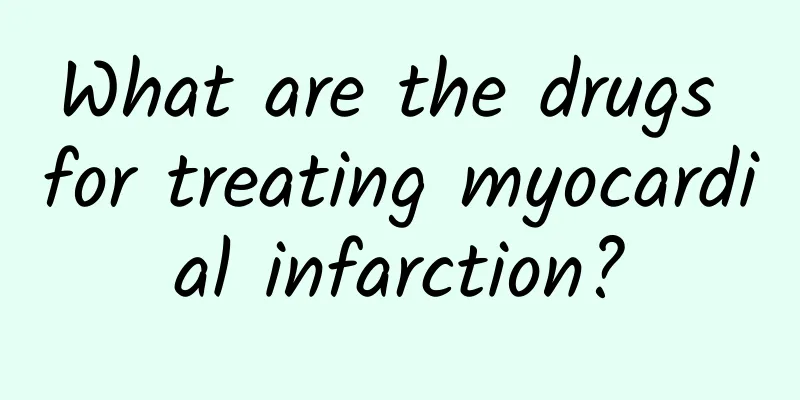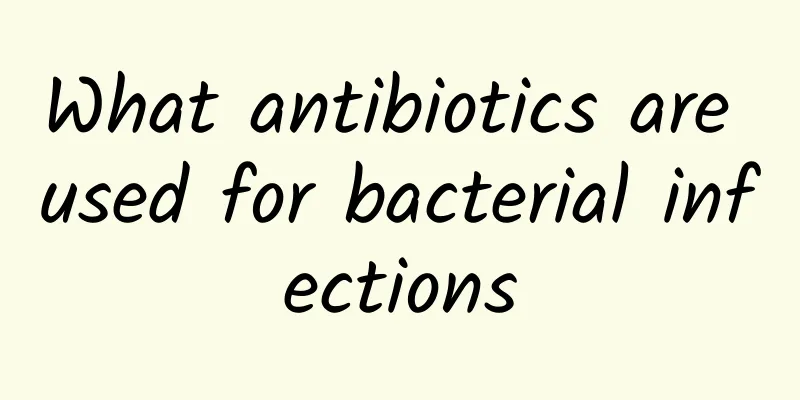What are the drugs for treating myocardial infarction?

|
Myocardial infarction has become a common disease around us, and many people have lost their lives due to myocardial infarction. Especially the elderly must pay attention to their living habits and avoid habits that are harmful to the heart. It is also very important to always have effective medicines on hand. So, what are the drugs for treating myocardial infarction? The drugs used to treat myocardial infarction are mainly aimed at preventing thrombosis and allowing blood to flow smoothly. Category I: Antiplatelet Aggregation Drugs These drugs are used to prevent blood clots from forming. Acute myocardial infarction caused by coronary heart disease is caused by the formation of blood clots in the coronary arteries that block the coronary arteries. The purpose of long-term use of this drug is to prevent recurrence of thrombosis. Representative drugs of this type include enteric-coated aspirin, clopidogrel, and ticagrelor. Currently, most guidelines recommend the use of aspirin combined with clopidogrel or ticagrelor for 1 year after acute myocardial infarction, followed by long-term use of aspirin, regardless of whether a coronary stent is implanted. Category 2: Cholesterol-lowering drugs These drugs are used to lower cholesterol. Increased cholesterol levels can easily cause coronary artery stenosis, and worsening stenosis can further cause blood vessel occlusion, leading to thrombosis and myocardial infarction. Therefore, this type of medicine mainly treats the root cause of coronary heart disease. Representative drugs of this type are atorvastatin and rosuvastatin. A warm reminder to everyone that patients with coronary heart disease should take this type of medication even if their cholesterol is not high. Category III: Beta-blockers The pharmacological action of this type of drug is to reduce myocardial oxygen consumption, resist arrhythmias, improve ventricular remodeling after myocardial infarction and improve cardiac function by slowing down the heart rate. It is recommended that patients with acute anterior myocardial infarction use this drug as early as possible, because premature ventricular contractions, ventricular tachycardia, and even ventricular fibrillation are prone to occur in the acute phase of anterior myocardial infarction. This drug is the best choice for preventing and treating this condition. Bradyrhythmia is prone to occur in the acute phase of acute inferior wall myocardial infarction, but this type of drug should be used as soon as possible after the patient's bradyrrhythmia recovers or the heart rhythm has stabilized without bradyrrhythmia. The most commonly used drug of this type in clinical practice is Betaloc, but it is recommended that everyone should use Betaloc sustained-release tablets - Metoprolol succinate sustained-release tablets. This medicine should be used with caution in the following three situations: patients with combined bronchial asthma, blood pressure lower than 90/60 mmHg, and heart rate lower than 60 beats/minute. Category 4: ACEI or ARB The Chinese name of ACE1 drugs is angiotensin converting enzyme inhibitors. Studies have clearly shown that this type of drug helps improve myocardial remodeling, reduce mortality and heart failure. ACE1 drugs include captopril, enalapril, fosinopril, benazepril, ramipril, perindopril, etc. A common side effect of this type of drug is dry cough. If dry cough occurs during use, the next best option is to choose ARB (angiotensin II receptor blocker), an alternative to ACE1. The pharmacological effects of ARB are similar to those of ACE1. Many patients regard this type of drug as an antihypertensive drug and question the doctor's use of this drug. This type of drug is used after a patient has a myocardial infarction. Its main effect is not to lower blood pressure, but to improve the prognosis of the myocardial infarction. It should be used even if the blood pressure is not high. |
<<: Commonly used drugs for the treatment of gout
>>: Drugs to prevent femoral head necrosis
Recommend
Early education and care for four-month-old babies
A four-month-old baby's brain development und...
What causes abdominal pain during menstruation?
During menstruation, women will experience some d...
Losing your voice after taking tonic? Blindly replenishing blood can cause dryness
According to traditional Chinese medicine theory, ...
Causes of numbness in feet
Numbness in the feet is a problem that many peopl...
How to eat Poria cocos
Poria cocos is a common Chinese medicinal materia...
Does shingles hurt? Here are 3 ways to relieve the pain
Now that it is spring and the weather is relative...
How long after a painless abortion can I wash my hair?
Painless abortion is a relatively common method o...
How to self-regulate mental health
Mental unhealth is a rather general term. It incl...
Big toe peeling
Many people suffer from peeling on their big toes...
Do you know the symptoms of lung abscess?
When the lungs are infected by bacteria, they bec...
Renal insufficiency diet, these five aspects must be paid attention to!
In addition to normal treatment, diet is the most...
What is the cause of white dandruff on the legs?
White dandruff on the legs is mostly caused by a ...
What should I do if I am allergic to BB cream?
Some people have sensitive skin, and sensitive sk...
Effects of Penicillin
With the continuous improvement of modernization,...
What to do if the skin itches and bleeds when scratched
The most common cause of the symptom of itchy ski...









